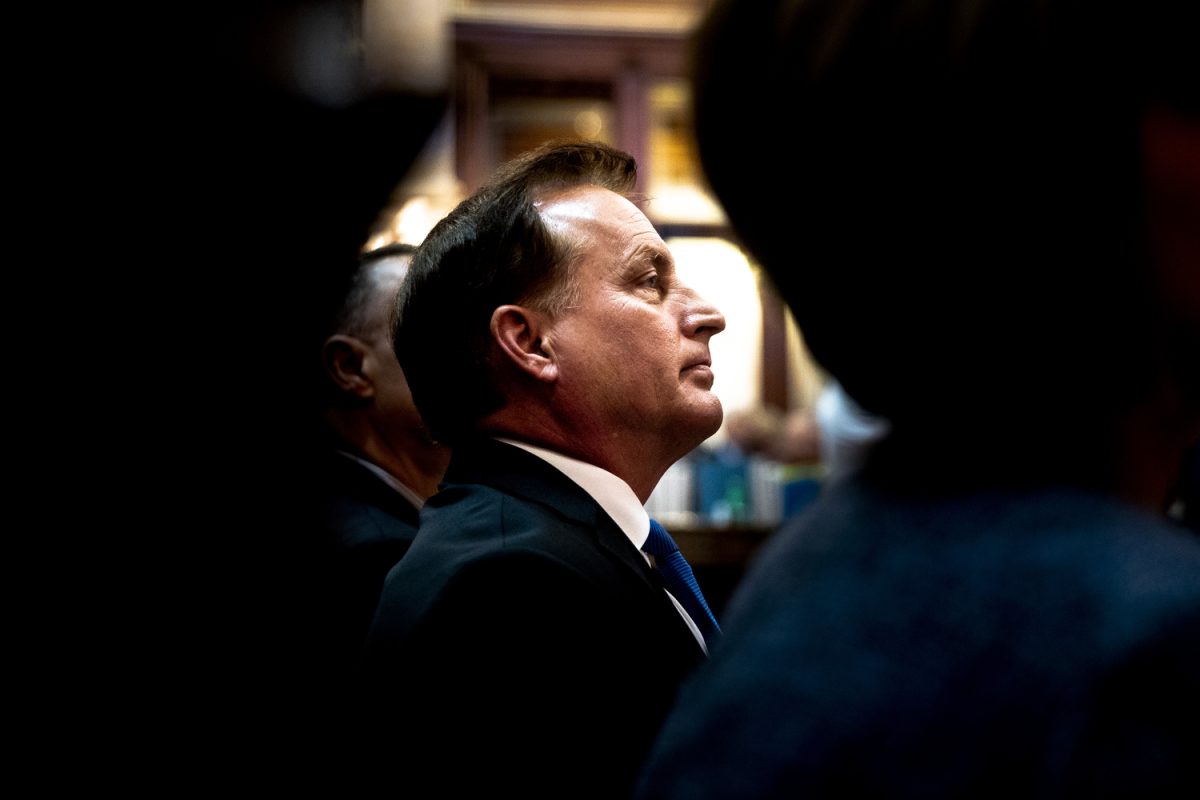The American Civil Liberties Union of Iowa filed a federal lawsuit late Wednesday night alleging Iowa Secretary of State Paul Pate violated federal law when he instructed Iowa County auditors to challenge the ballots of more than 2,000 Iowa voters who he suspects might be noncitizens attempting to vote.
The lawsuit alleges that Pate used outdated Iowa Department of Transportation data, such as driver’s license applications where applicants indicated they were legal permanent residents at the time of application, to prevent the more than 2,000 voters from voting despite their naturalized citizenship.
The lawsuit comes more than a week after Pate announced the measure after his office conducted an audit of the state’s voter registration roles and compared it with Iowa DOT data on people who are not citizens.
Pate has also previously used the data to refer 154 Iowans for investigation and possibly prosecution by the Iowa Attorney General’s Office who he believes illegally voted in previous elections while still legal permanent residents and not U.S. citizens.
Lawyers say the data from Iowa DOT is not up to date and only reflects their legal status when they applied for their driver’s license or filled out other Iowa DOT forms.
According to the Cedar Rapids Gazette, Linn County Auditor Joel Miller said at least three on the secret list provided by the secretary of state are naturalized citizens and eligible to vote in the 2024 election.
Four of the plaintiffs that are being represented by the ACLU of Iowa, the national ACLU, and a Minneapolis law firm are naturalized citizens and are on the secret list.
Pate acknowledged at a press confrence on Wednesday that some of those challenged are naturalized citizens, but said that the challenges are to have voters prove their citizenship to county officials.
Pate instructed county auditors to challenge the eligibility of the voters on the list, requiring them to vote provisional ballots until they can prove their citizenship to county election boards after the election. Pate, however, did not cancel their voter registration and remove them from voter roles, instead instructing county election officials to instead challenge the voters’ ballots so they could prove they were U.S. citizens to county officials.
Attorneys for the plaintiffs argue that Pate violated the federal National Voter Registration Act by doing mass data based challenges to voter registration within the federal protected window before a general election. They also alleged the move violated the plaintiff’s constitutional rights to vote, due process, and equal protection.
“It is shocking that the state’s highest official who is charged with protecting the voting rights of Iowa citizens is instead spearheading an effort to disenfranchise U.S. citizens,” Rita Bettis Austen, the legal director of ACLU of Iowa, said during a press conference on Thursday.
Bettis Austen said Pate’s directive fuels misinformation that noncitizens are voting in U.S. elections. The challenges come as Virginia recently purged thousands of voters from its own voter rolls because of similar concerns, the U.S. Supreme Court recently upheld the decision.
“He is fueling a false narrative about voter fraud by non-citizens and laying the groundwork to undermine confidence in the election,” Bettis Austen said. “There is simply no lawful basis to require these citizens to vote provisional ballots instead of regular ballots, like all other citizen voters, this is discriminatory, and it’s wrong.”
ACLU of Iowa is expected to file a motion for a temporary block on Pate’s directive and an emergency hearing in front of a federal judge.
Iowa Attorney General Brenna Bird, whose office represents the state in legal matters, said in a statement on Thursday that the lawsuit aims to upend Pate’s directive which she says would bolster the security of Iowa elections.
“Iowa law guarantees that every eligible voter can vote and every legal vote will count,” Bird said in a statement Thursday. “Every noncitizen who illegally votes cancels out an Iowan’s valid vote. We won’t let that happen. I am fighting to defend our long-standing election integrity laws and ensure Iowans can maintain trust in our elections.”



